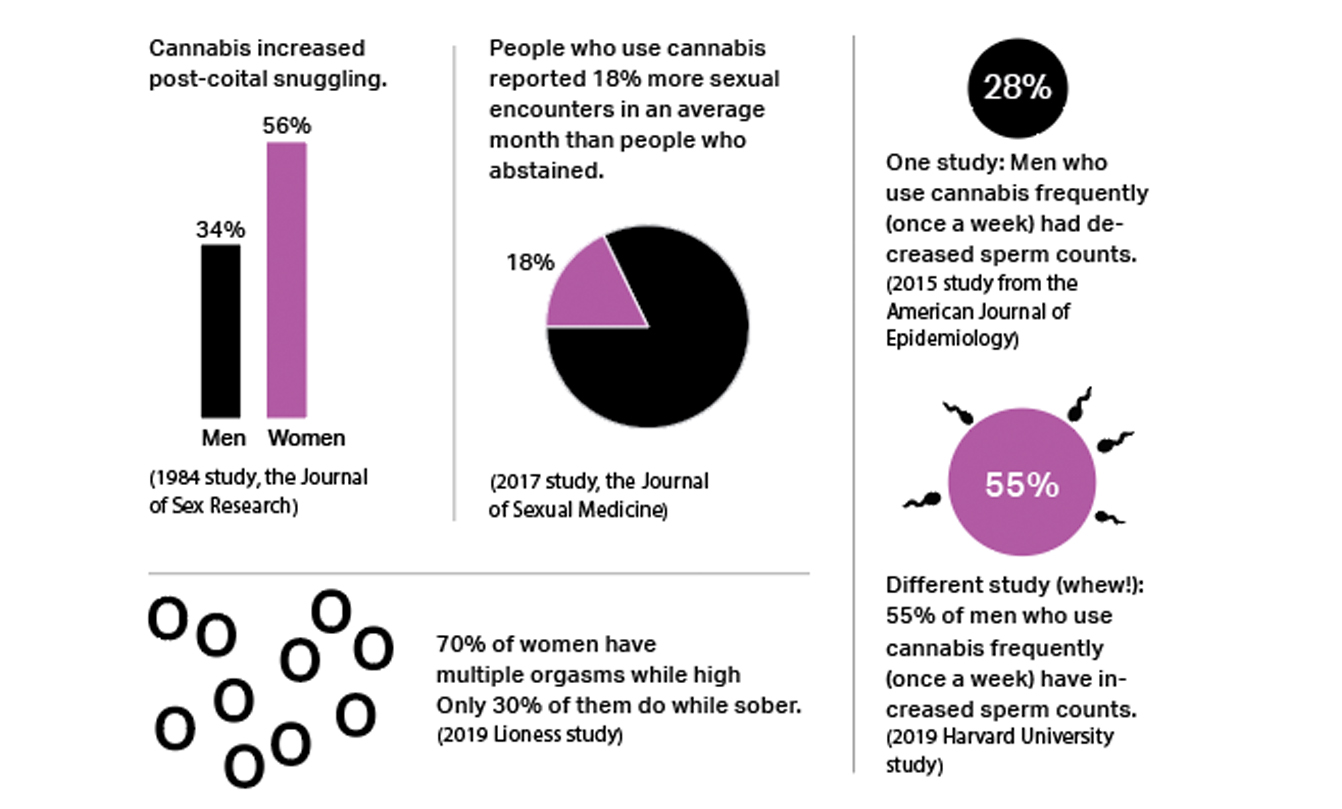The Wild (and Sometimes Contradictory) Science of Cannabis and Sex
It's been difficult for scientists to do any meaningful research on sex and cannabis. But here's what we do know.
Here’s the problem. Some U.S. states—we’re not pointing any fingers Alabama, South Carolina, South Dakota, Tennessee, Idaho, Wyoming, Kansas, Louisiana, Wisconsin, Kentucky, and oh yeah, the entire freakin’ federal government—still lump consider cannabis in with heroin and ecstasy. Which makes it very difficult for scientists who know better to do any meaningful research. They can’t acquire enough quality cannabis to study it, nor are they allowed to administer test doses.
Dr. Becky Lynn from Saint Louis University wanted to do some rigorous testing on what sorts of effects cannabis has on the human body during sexual intercourse. “But we can’t give women marijuana and say, ‘Go have sex and tell us what happened,’” she says. At least, not and remain free to practice her profession. “So most of the human studies are questionnaires.”
Which presents a problem. It means all of the evidence they’re gathering is based on what people remember from their experiences. And there’s no way to look at (or verify) dosing. “We don’t know exactly how much marijuana they used or when they used it,” Lynn says. “The closest we have to real research are rat studies, and rats have very different mating behaviors than people.”
But that hasn’t stopped generations of researchers from trying anyway. From one of the very first studies, a groundbreaking 1971 paper called “On Being Stoned” by American psychologist Charles Tart, which concluded that “so much (of the experience of having sex after using cannabis) is beyond words,” there have been a lot of good intentions, and some (occasionally) fascinating insights.
Here are some of our favorite takeaways.
